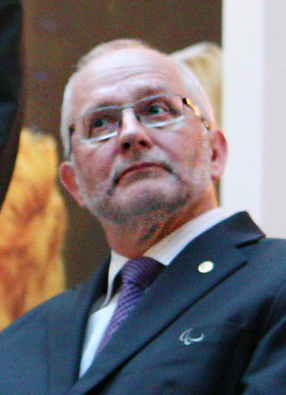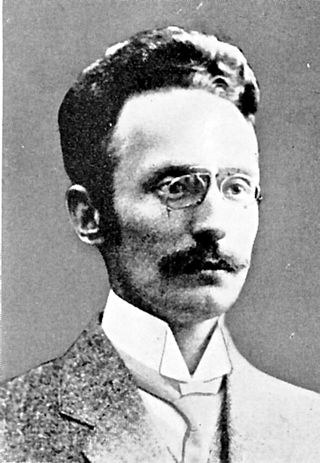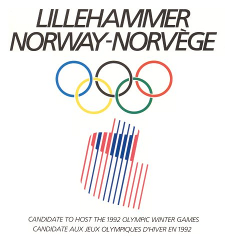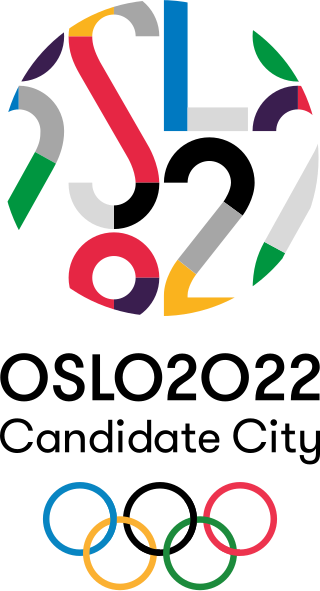
Jens Gerhard Heiberg (born 20 April 1939, in Oslo) is a Norwegian industrialist who was head of the Lillehammer Olympic Organizing Committee (LOOC) and member of the International Olympic Committee.

Jens Gerhard Heiberg (born 20 April 1939, in Oslo) is a Norwegian industrialist who was head of the Lillehammer Olympic Organizing Committee (LOOC) and member of the International Olympic Committee.
Heiberg received a graduate degree in economics at the School of Economics in Copenhagen in 1963 and one in Human Relations in Business & Industry at the California State University in 1964. [1]
Heiberg began his career in 1965–1966 as a market analyst at Norsk Hydro. He then became vice president in 1973 and President in 1987. [2] After his work at Norsk Hydro, he held various management positions at Borregaard from 1966 to 1972. In 1972, he was also deputy CEO of Norcem until 1973. He was then CEO of Norcem from 1973 to 1987 and of the merged Aker Norcem from 1987 to 1989. Heiberg became a member of the International Olympic Committee in 1994 and was board member of it from 2003 to 2017. He has been an honorary member since 2017. In 1994, he was the President of the Lillehammer 1994 Paralympics Games Organising Committee (LPOC). [3] He was also a member of the Olympic Winter Games Coordination Committee in Nagano from 1995 to 1998, in Salt Lake City from 1996 to 2002 and in Turin from 2000 to 2006. Heiberg also had several positions in the business. He was chairman of Aker ASA from 1989 to 1996 and of Norwegian Trade Council. [4] [5] Heiberg was also chairman of the Committee of Representatives of Wilh. Wilhelmsen. [6] From 1995 to 2000 he was chairman of the board of Den norske Bank. [5] He is also a partner in the firm Norscan Partners AS in Oslo. [7]
Heiberg has received several commissions and awards for his work. He has been Commander of St. Olav's Order and of the Togolese Mono Order, Knight of the Lion's Order and of the French Honors Legion as well as holder of a Great Global Mark in Silver of the Austrian Global Mark for Merit. Heiberg has also received the Olympic order of gold. [2]

The 1994 Winter Olympics, officially known as the XVII Olympic Winter Games and commonly known as Lillehammer '94, was an international winter multi-sport event held from 12 to 27 February 1994 in and around Lillehammer, Norway. Having lost the bid for the 1992 Winter Olympics to Albertville in France, Lillehammer was awarded the 1994 Winter Games on 15 September 1988, two days before the 1988 Summer Olympics opening ceremonies at the 94th IOC Session in Seoul, South Korea. Due to the calendar changes made in 1985, this was the only time that the Winter Olympics took place two years after the previous Winter Games, and the first to be held in a different year from the Summer Olympics. This was the second Olympic Games of any type hosted in Norway — the first being the 1952 Winter Olympics in Oslo — and the fourth Olympics overall to be held in a Nordic country, after the 1912 Summer Olympics in Stockholm, Sweden, and the 1952 Summer Olympics in Helsinki, Finland. As of 2022, Lillehammer is the northernmost city ever to host the Olympic Games and also the smallest. This was the last of three consecutive Olympics held in Europe, with Albertville and Barcelona in Spain hosting the 1992 Winter and Summer Games, respectively.
Erik Anker was a Norwegian sailor and businessperson.

Lillehammer Olympic Bobsleigh and Luge Track is a bobsleigh, luge and skeleton track located at Hunderfossen in Lillehammer, Norway, 15 kilometers (9 mi) north of the town center of Lillehammer. It was completed in 1992 for the 1994 Winter Olympics, where it hosted the bobsleigh events and luge events. It has since also hosted the FIBT World Championships 1995 in skeleton and the FIL World Luge Championships 1995, and hosted 2016 Winter Youth Olympics.
Events in the year 1912 in Norway.
Liv Monica Bargem Stubholt is a Norwegian lawyer and former politician for the Norwegian Centre Party. She currently serves as a partner in law firm Selmer AS and former industry executive as Senior Vice President Strategy and Communication in Kvaerner ASA - a listed EPC company in the petroleum industry.

Sir Philip Lee Craven is an English sports administrator, former Paralympic wheelchair basketball player, swimmer and track and field athlete. Between 2001 and 2017 he was the second president of the International Paralympic Committee (IPC).
Rolf Østbye was a Norwegian businessperson.

Hans Heiberg was a Norwegian journalist, literary critic, theatre critic, essayist, novelist, playwright, translator and theatre director.

Gustav Adolf Lammers Heiberg was a Norwegian barrister and politician for the Labour Party.

Eivind Heiberg was a Norwegian engineer and railway director. He is known as the chairman of Skabo Jernbanevognfabrik from 1899 to 1924, the Federation of Norwegian Manufacturing Industries from 1906 to 1912, the Norwegian Employers' Confederation from 1912 to 1917, the Norwegian State Railways from 1924 to 1938 and Standards Norway from 1924 to 1934.
Preben Hempel Munthe was a Norwegian economist.
Jan Staubo was a Norwegian sportsman, politician and sports official. As a sportsman he competed internationally in tennis and nationally in other sports. He was a member of the city council of Norway's capital, and a member of the International Olympic Committee for 34 years.

The Lillehammer bid for the 1992 Winter Olympics and Paralympics was an unsuccessful campaign launched in 1984. It bid ended fourth of seven at the 91st IOC Session on 17 September 1986, who awarded the 1992 Winter Olympics to Albertville, France. The defeat resulted in a bid for the 1994 Winter Olympics, which was won.
The opening ceremony of the 1994 Winter Olympics took place on 12 February 1994 at Lysgårdsbakken in Lillehammer, Norway.
The closing ceremony of the 1994 Winter Olympics was held in Lysgårdsbakken in Lillehammer, Norway on 27 February 1994. All spectators were handed a flashlight with the inscription "Remember Sarajevo" – the host of the 1984 Winter Olympics which was at the heart of the Bosnian War. The first entrants on the stage were Liv Ullmann and Thor Heyerdal, followed by the athletes' precession. After the flag had been transferred to Nagano mayor Tasuku Tsukada, speeches were held by Lillehammer mayor Audun Tron, LOOC head Gerhard Heiberg and IOC president Juan Antonio Samaranch. The latter used his speech to commemorate Sarajevo's situation, before giving Heiberg the Olympic Order in gold, and declaring the games "the best Olympic Winter Games ever". Artistic presentations followed, revisiting many of the themes from the opening ceremony. The mascots of the 1998 Winter Olympics, the "Snowlets", were also presented. Of the 2,200 people performing in the opening and closing ceremonies, only 50 were professionals.
Oslo–Lillehammer 2018 was a proposal for Oslo and Lillehammer, Norway, to bid to host the 2018 Winter Olympics. Along with the Trondheim and Tromsø bids, it was one of three options for the Norwegian Olympic and Paralympic Committee and Confederation of Sports (NIF), who ultimately chose to not bid for the games. Oslo announced the bid in September 2006, and the official proposal report was published in February 2007.

Norefjell Ski Resort is a mountain ski resort located in Krødsherad, Norway, on the mountainside of Norefjell. The venue for four Olympic alpine skiing events in 1952, it is located northwest of Oslo, 90 minutes away by vehicle.

Oslo 2022 Winter Olympics was a campaign by the private organization Norwegian Olympic and Paralympic Committee and Confederation of Sports for the right to host the 2022 Winter Olympics in Oslo, although in Norway it was primarily viewed as an application by the Olympic movement for government funding of an Olympic Games that would ultimately be decided by the Norwegian Parliament. The Olympic organisations had already indicated a strong desire that Norway would host the games and provide the necessary funding. Oslo was described as the clear favourite to host the games in international media and was widely expected to be awarded the games, provided that the Norwegian Parliament granted the necessary funding.

Kristin Kloster Aasen is the former first vice president of Norwegian Olympic and Paralympic Committee and Confederation of Sports from 2015 to 2019. She was the president of the Norwegian Equestrian Federation from 2003 to 2012, and elected onto the International Olympic Committee in 2017. While with the IOC, Assen was part of commissions for the 2026 Winter Olympics, 2026 Winter Paralympics and 2032 Summer Olympics.